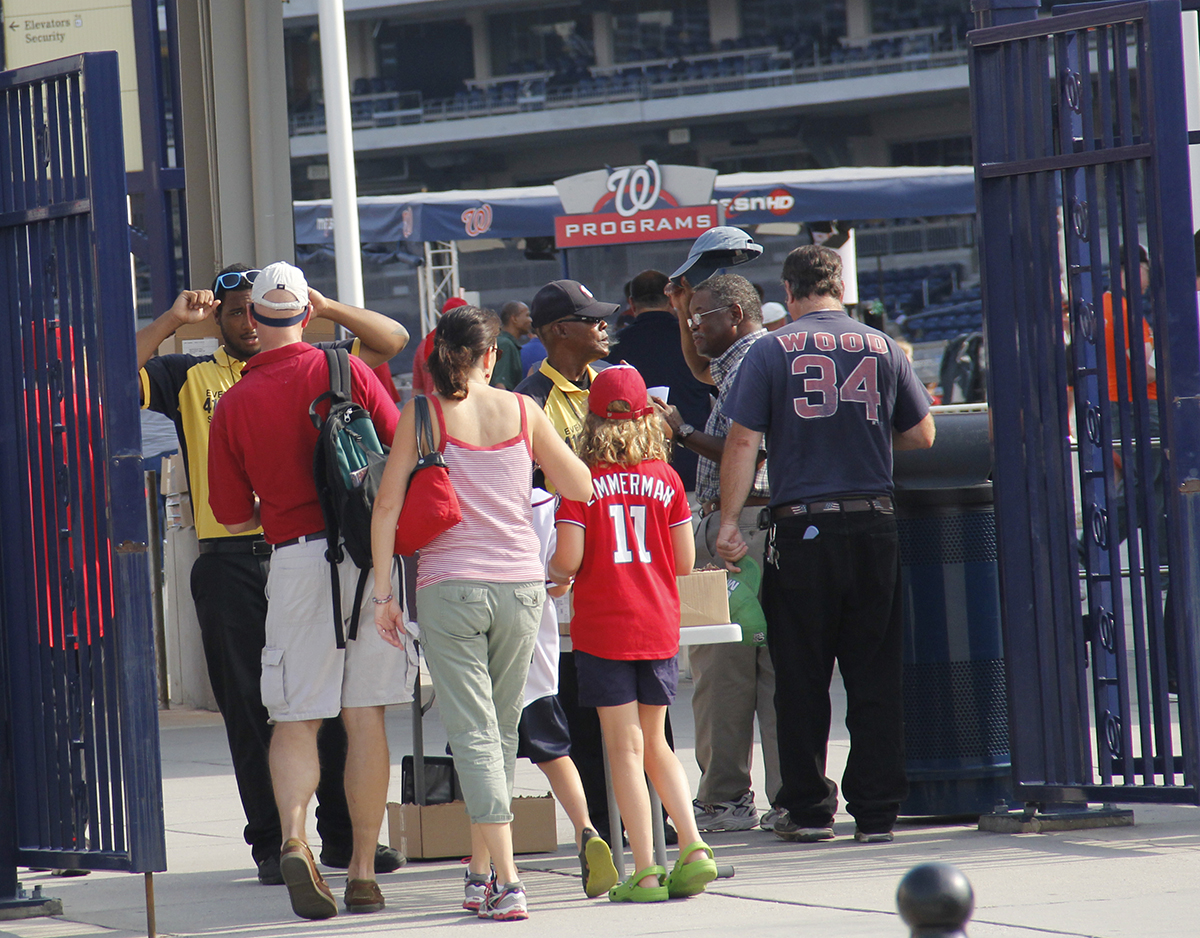WASHINGTON — With growing concerns about security, Major League Baseball is raising the ante for fans at stadiums. By 2015, MLB will require all teams not already using metal detectors to have the technology in place.
As Baseball plays it’s championship series this summer, what it takes to get into a baseball stadium — beyond a ticket — varies from place to place.
Major League Baseball spokesman Michael Teevan confirmed that the use of metal detectors or walk-through magnetometers is still scheduled to be mandatory by next season. Teevan, in an email, said the decision to use the devices and “standardize security practices across the game” came after consultation with the Department of Homeland Security.
Some fans are already getting used to it. Since opening day in Minneapolis, fans at Target Field, site of this week’s All-Star game, have had to pass through metal detectors before proceeding to their seats.
“I’m not bothered by the security measures, if anything they make a lot of sense,” said Cristeta Boarini, 24, a Twin Cities-based reporter, in a message on reddit.com. “Target Field is big, it’s open, and the detectors act as a deterrent.”
Adam Clifton, 34, a systems engineer from Robbinsdale, Minn., had a much different perspective. In an email, Clifton said he first saw the metal detectors in late May, “My initial reaction was one of surprise, and then immediately disgust… I was never pleased with them inspecting ladies’ purses and I’m not pleased with the metal detectors.” Metal_detector_medium
Clifton also noted longer lines to get in and watch the game. “My wife and I arrived at the gates, and were surprised to see a much more crowded entrance than normal.”
Not far from the Capitol, at Nationals Park in Washington, security personnel don’t use metal detectors but make ticket-holders remove their caps in front of security before moving on to the ticket-scanning stage with their hats back in place.
Just up I-95 in Baltimore, attending an Orioles game at Camden Yards is comparatively simple. There’s the bag-check where purses and other bags are searched for disallowed content, but then fans get their tickets scanned and watch the O’s.
Even within the same city, stadiums can vary. At Wrigley Field in Chicago, fans go through a regimen similar to Baltimore’s. But on the South Side at US Cellular Field, White Sox fans must pass through metal detectors.
Other stadiums, such as Dodgers Stadium, have begun phasing in metal detectors ahead of full implementation by next season. At least nine teams have implemented or started to put in place metal detectors ahead of next year’s deadline.
While fans, at least at Target Field and Dodgers stadium, don’t have to remove shoes or belts, putting cell phones and other metal objects like watches into a bin and walking through a metal detector could make some of them feel as if they’re going through security at an airport.
“The whole thing didn’t have any ‘maximum security prison’ feel or anything remotely like it,” said Twins fan Scott Bowman, a 19-year-old college student from Coon Rapids, Minn.
Teevan said generally fans accept metal detection at public events, adding, “We feel that this step enhances security and poses minimal inconvenience. Overall, we are pleased with how the new policy has been received.”
But adding new security measures comes with costs. In a St. Louis Business Journal article, St. Louis Cardinals executive Joe Abernathy said the Redbirds would pay for about 50 metal detectors ranging in price from $5,000 to $10,000 per detector; no cheap endeavor.
“Baseball games are extremely safe places to be,” said Jim Harper, a senior fellow at the libertarian-leaning Cato Institute. “But, people are susceptible to fear.”
Harper said the use of metal detectors is a sign of the times in that a government agency-Homeland Security -is involved in a private entity’s affairs.
Security at sporting events became a very public issue after the deadly 2013 bombing of the Boston Marathon. Ahead of the 2013 NFL Season, the league imposed a new bag policy, limiting bags mostly to clear totes and clutch bags the size of a person’s hand.
Ballpark experiences vary at each venue, whether it’s the price of a hot dog, the aesthetics, or even whether it’s a pitcher’s or batter’s park.
Outfield walls like the Green Monster at Fenway Park in Boston all add to an individual park’s charm and can affect the home team’s advantage, but when it comes to security, attending a game is on track to become much more uniform.


